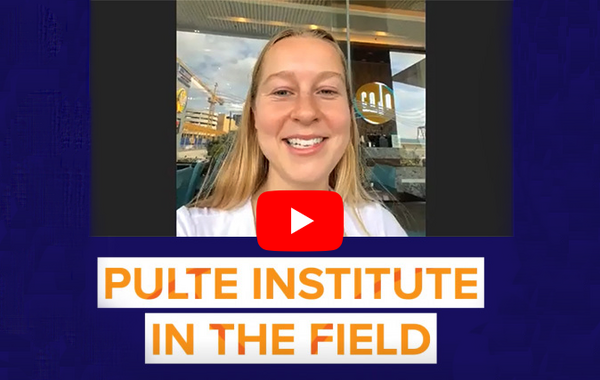Location:
Manila, Philippines
Study:
SHARE's LITES workshop in Feb. 2023 looked at policies surrounding Mother Tongue-Based Multilingual Education (MTB MLE) policy
Transcript of Caroline's Video Diary:
Our on-the-ground partner is PIDS or the Philippine Institute of Development Studies, and they are outstanding. The team has so much expertise in the area and is highly communicative. They’re always going above and beyond, thinking ahead, and filling in the gaps before we think of things. They're very critically engaged. Whenever we send them a new qualitative interview tool, they come back with thoughtful questions about how it will be perceived. They're just a great team. They're so personable and fun to be around, and having this in-person time to connect with them has been so special.
This is my second time back in the Philippines. I was here in December for the ToT or training trainers for the LITES (Language of Instruction Transition in Education Systems) workshop. Now we're back and seeing the workshop actually happen, it’s just been amazing. The PIDS team is so organized. I had the chance to go to their office before the workshop and see all the preparations they had done to ensure the stakeholders were engaged and had all the information, but also to make sure the workshop ran seamlessly. They had pre-prepared all the materials and counted everything on the tables. They're an incredibly meticulous team, and we’re so thankful for their skills.
The LITES workshop primarily looked at policies surrounding Mother Tongue-Based Multilingual Education (MTB MLE) policy. So first, I'll take a step back. MTB MLE programs serve learners of non-dominant language communities who do not understand or speak the language of instruction when they begin their formal education. So, having teachers speak to students in their mother tongue or home language. There are tons of rich, cross-country, multi-country, multi-country evidence showing that when students learn in their first language or the language they're most comfortable in, they expand their reading skills much faster. And that those reading and literacy skills are then transferrable to the second language or the L2, which in the Philippines is English.
Oftentimes, that transition happens around third grade. So, students will learn ideally in their mother tongue or their L1, and learn to read in that language. Then they study English as a subject, or they get some dosage of English up until third grade, and then they transition to the language of instruction in the L2, here in the Philippines, often English. The research shows that when students learn to read in their first language, they're much more successful in their second language reading skills because many of the skills we use to read are transferrable across languages. So that's the empirical evidence we're working with.
L1 has yet to be prioritized in the Philippines. L1s tend to have these low levels of political prioritization and slightly inefficient implementation levels. So why have the policies yet to be implemented to their full capacity or in the best way possible? We're working with a group of stakeholders who have some expertise in this area and doing a lot of root cause analysis, both of low levels of policy prioritization and low levels of policy implementation, and working with these stakeholders and with our local research team to understand why that's been the case.
The great thing about the research is that both are true that preserving the L1 and teaching students in the L1 are conducive to gains in the L2. So, when students learn that first language, they become more successful in reading in the second language. That evidence is really exciting, and that shows that it is important to preserve those languages and maintain and teach students them, not only a product of preserving language but also because it's the best way to learn.
In the L2 groups, we used a fishbone analysis so that the head of the fish is the problem, and these bones and the fish are the factors causing the problems. So, we asked the groups to brainstorm what they thought were the six factors and then sub-factors. Then we go back and say, how certain are you that it is a factor? And are you really certain? Or are you kind of certain, or are you not so certain? Did you hear a speech from someone at the Department of Education, or were you in the room and heard people talking about this, or did you have a firsthand experience?
We'll go back and look at all these fishbones and diagrams that the participants worked on and try to find those factors that seem compelling, strong reasons that may have led to lower policy prioritization or implementation. Still, maybe they're only kind of certain; then we can go and investigate that further and figure out whom we need to talk to or what we need to do to confirm that factor and validate it. So that will inform whom we talk to in our key informant interviews and with our process tracing.
These outputs are super important to us as we move into the next phase of our research implementation. It’s a chance to be in person together, not only with the PIDS team but with local stakeholders, and to chat about these issues over breakfast and after the workshop.
It’s been exciting and helped me think through many of the questions I've had that I haven't had the time to dive into or haven't wanted to steal someone's time to discuss. But here, we have free time to chat, work through things together, and form relationships. Once we get back and we've established relationships in person, conversations on Zoom flow easier. The personal element has been the best part.
